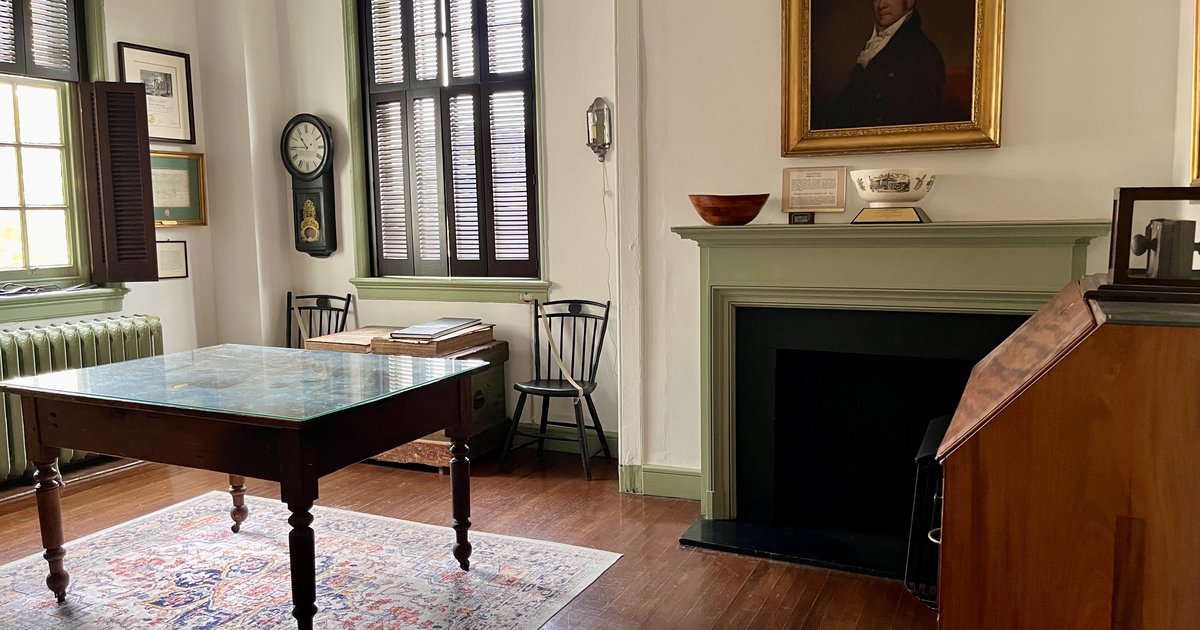In the fall of 1775, American colonists seeking independence from Great Britain were gathering resources and making plans for the fight for freedom. Among the questions that remained undetermined — could they count on support from France, Britain’s longtime enemy?
“The animosity between the two countries was seen as a possible opportunity for the Continental Congress, ‘the enemy of my enemy’ sort of thing,” said Michael Norris, executive director of Carpenters’ Hall in Philadelphia. “So, there was great interest in trying to figure out if and how and under what conditions France would become an ally of the Patriots and help support the Revolutionary cause.”
MORE: Conshohocken framing store curates Bruce Springsteen exhibit to celebrate release of biopic
To check the temperature of support they may have overseas, a group of Founding Fathers created the Committee of Secret Correspondence — a forerunner to the Department of State. The efforts of that group resulted in secret meetings between Benjamin Franklin and a French spy, Julien-Alexandre Achard de Bonvouloir, at Carpenters’ Hall in December 1775.
Carpenters’ Hall, at 320 Chestnut St., is hosting programs called the “Year of the Spy” for visitors to learn more about the secret meetings. An espionage-themed book club in partnership with the Rosenbach Museum and Library is running through March. After-hour whiskey tours of the second floor are happening in November, and a spy soiree and screening of a film about the secret meetings are slated for December.
Carpenters’ Hall, which dates back to the 1770s, is known for hosting the first Continental Congress in 1774. But in 1773, Franklin also rented the second floor space for his Library Company of Philadelphia and hired Francis Daymon, a Frenchman who spoke French and English, to work as a librarian. When selecting a location for the meetings, he selected the Library Company so Daymon could serve as a translator.
Bonvouloir was a nobleman from Normandy. French leaders chose him to assess the American colonies’ situation, because he had visited Philadelphia and had some connections in the area. There are some reports that he had encountered Franklin either on his stateside visit or in London, Norris said. Thus, he met with Franklin, Daymon and John Jay, who became the first Chief Justice of the Supreme Court, three times between Dec. 18-27, 1775, about French support for the war.
Bonvouloir was not allowed to carry instructions, and French officials said he wouldn’t receive any help if he was exposed. Bonvouloir also was not permitted to negotiate on France’s behalf. As a result, he was mostly at the meetings to listen, Norris said, and Franklin took that opportunity to do a “sales pitch” for the colonists’ cause.
“(Franklin) kind of stretched the truth a little bit, because things were pretty tough at the beginning for the Continental Army,” Norris said. “So, he’s really giving the French guy a sales pitch to convince him that it was in France’s strategic interest to support the Revolution.”
The approach worked. Bonvouloir wrote in his report to French leaders that the Continental Army was “more powerful than one thinks.”
“They all told me they were fighting to be free and that they would be so at any cost; they were bound by oath and would rather be cut to pieces than yield,” he wrote.
In 1776, Franklin went to France, where he spent the next two years convincing French leaders to support the American cause. The country eventually agreed to serve as an ally and supply ammunition and money for the cause. Historians estimate that 90% of the gunpowder fired by American troops came from France, and the French supported a shipbuilding program that was key for the victory in the Battle of Yorktown.
Bonvouloir died in India in 1783, the same year that the British and Americans signed the Treaty of Paris, ending the Revolutionary War. But his initial meetings with Franklin and positive report were a key seed for securing the French alliance that led to victory, Norris said.
“The might of the British army and navy would have ultimately overcome the Continental Army, for sure, without the additional support that we got from France,” Norris said.

